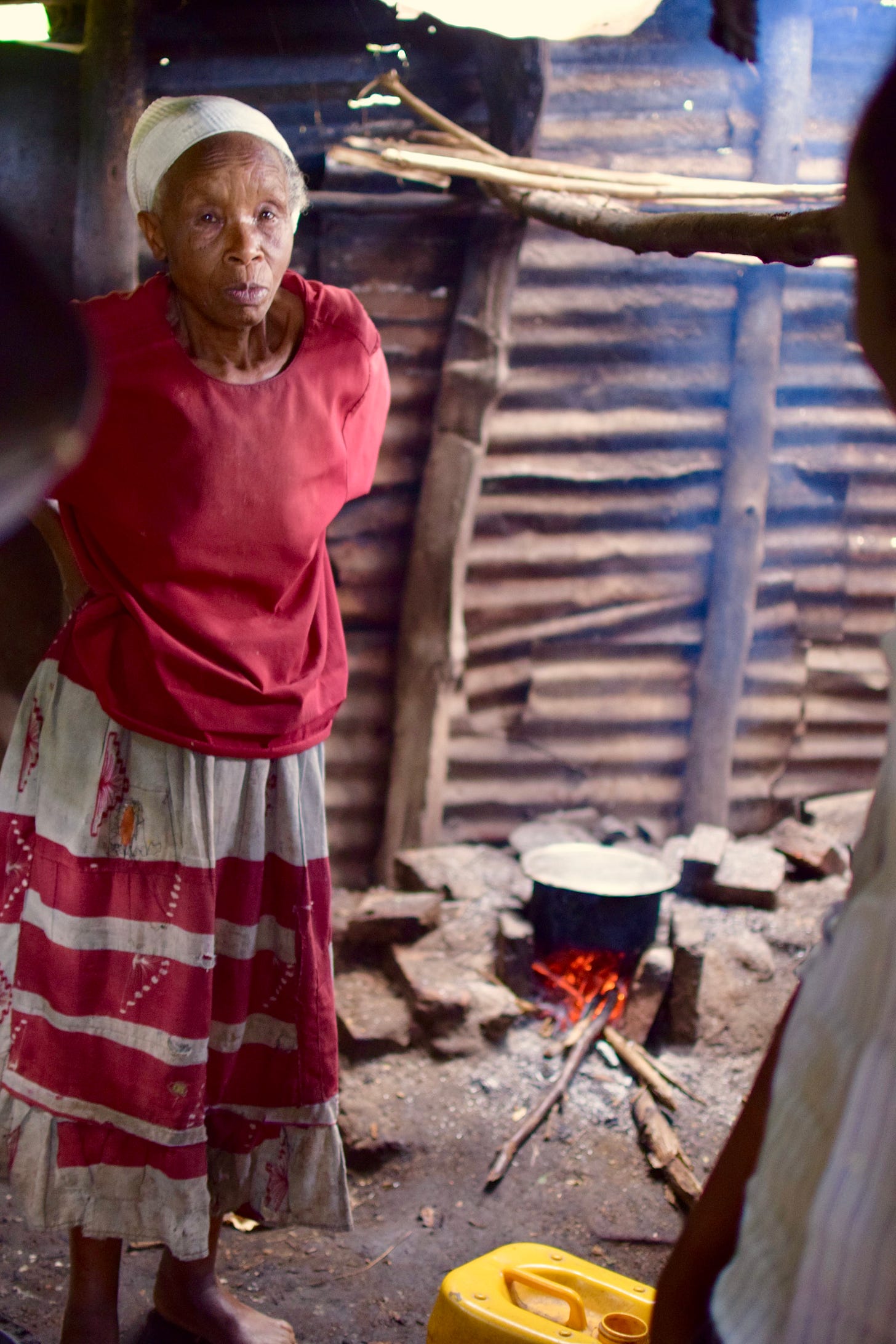At United Nations climate change talks in Dubai, the Biden Administration’s Special Envoy for Climate Change, John Kerry, called for a halt to new coal plants worldwide. “There shouldn't be any more coal-fired power plants permitted anywhere in the world,” he said. “That's how you can do something for health. And the reality is that we're not doing it.”
But the main alternative to burning coal is burning wood and dung, which is far worse for human health. Where coal is burned inside of large power plants, wood and dung are burned inside of homes, creating indoor air pollution, which is far more concentrated and deadly than outdoor air pollution.
In 2016, I interviewed people living around an old and dirty coal power plant in India. The plant provided them with free electricity but also sometimes emitted toxic ash, which they said irritated and burned their skin. However much they hated the pollution, none said they would give up the free, dirty electricity for cleaner electricity at a cost.
And coal burning has become dramatically cleaner over the last 200 years. A simple technical fix added to coal plants in developed nations after 1950 reduced dangerous particulate matter by 99%. High-temperature coal plants are nearly as clean as natural gas plants, save for their higher carbon emissions.
As we stop using wood for fuel, we allow grasslands and forests to grow back and wildlife to return. In the late 1700s, the use of wood as fuel for cooking and heating was a leading cause of deforestation in Britain. In the United States, per capita consumption of wood for fuel peaked in the 1840s. It was used at a per capita rate that was fourteen times higher than today.
Fossil fuels were thus key to saving forests in the United States and Europe in the eighteenth and nineteenth centuries. Wood went from being 80% of all primary energy in the United States in the 1860s to 20% in 1900, before reaching 7.5% in 1920.
The environmental and economic benefits of fossil fuels are that they are more energy-dense and abundant. A kilogram of coal has almost twice as much energy as a kilogram of wood, while a kilogram of liquefied petroleum gas has three times the energy as the rice husk biomass she cooked with back on the farm.
While the energy density of coal is twice as high as the energy density of wood, the power density of coal mines is up to twenty-five thousand times greater than forests. Even eighteenth-century coal mines were four thousand times more power-dense than English forests and sixteen thousand times more power-dense than crop residues, like the kind families in places like Indonesia use for cooking fuel.
None of this is to say that burning coal is “good,” only that it is, on most human and environmental measures, better than burning wood. People burn wood, not coal, and coal, not natural gas, when those fuels are all they can afford, not because those are the fuels they would prefer.
It’s fair to wonder if poor villagers in South Asia and sub-Saharan Africa could use natural gas, solar panels, and batteries instead of burning wood or coal. The answer is that many already use solar panels — when the sun is shining. As for batteries, they remain very expensive, and are quickly depleted.
In Uganda, Helen and I stayed at an eco-lodge equipped with solar panels and batteries. But after a single day of cloudy weather, we quickly drained the lodge’s batteries charging our laptops, cameras, cell phones, and other devices. When we told the lodge manager that we needed more electricity, he did what small businesses across sub-Saharan Africa do, and fired up a diesel generator.
And other people use natural gas and liquified petroleum gas (LPG) made from oil, and would like to use more, if only it were more abundant and cheaper
And yet Kerry has been putting pressure on banks and other financial institutions for the last three years to reduce investments in oil and gas. Public records show that Kery flew in his wife’s private jet 48 times during the first 18 months that Biden was in office.
Other than being hypocritical, there’s something else that’s odd about Kerry’s position.















